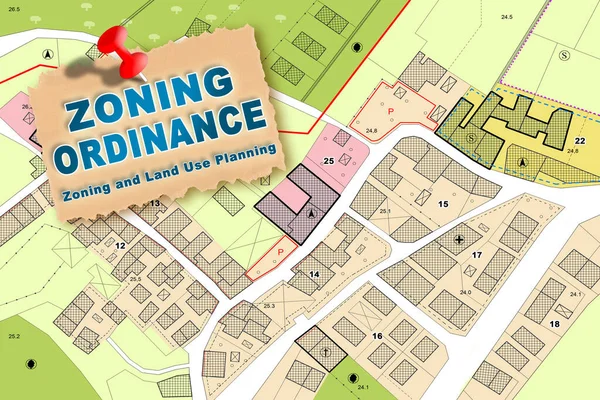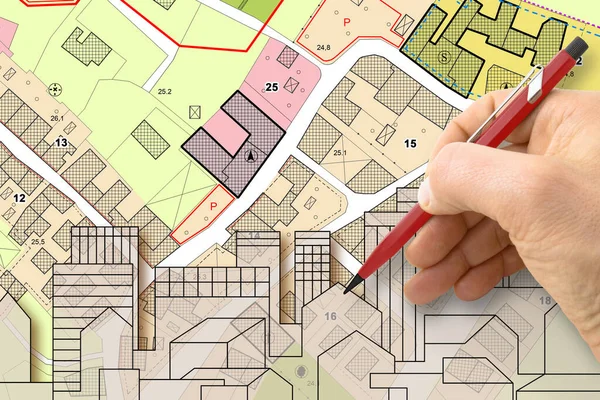
Navigating zoning laws is a crucial step before embarking on a construction project. Understanding these regulations can determine the feasibility and scope of your building plans.
For individuals or families looking to purchase land for building their dream home, navigating zoning laws is essential to ensure compliance and avoid costly mistakes.
One of the key aspects to consider before starting any construction project is researching and comprehending the zoning regulations specific to the property. Zoning laws dictate what type of structures can be erected, the land’s designated use, and any restrictions that may impact your building plans. By having a clear understanding of these laws, you can plan your construction project effectively and avoid potential setbacks.
First-time land buyers seeking guidance on selecting and preparing land for construction, budgeting, and navigating legal requirements will find valuable insights in understanding zoning laws. Sustainable building practices, landscaping ideas, and finding the right professionals are also integral parts of the construction process that can be influenced by zoning regulations. Laying a solid foundation of knowledge on zoning laws can streamline the path to realizing your vision for a new home.
Understanding Zoning Laws and Regulations
Zoning laws are crucial regulations that govern how land can be used in specific areas. Understanding these laws is essential before embarking on any construction project to ensure compliance and avoid legal issues. Let’s delve into the types of zoning regulations and the zoning compliance process:
Types of Zoning Regulations
When it comes to zoning regulations, there are different categories that define land use restrictions and requirements. These include residential, commercial, agricultural, and industrial zoning:
- Residential Zoning: This zoning classification is primarily for single-family residences, suburban areas, apartments, co-ops, and condos. It typically restricts the type and size of structures that can be built in residential areas.
- Commercial Zoning: Commercial zones are designated for businesses, shops, offices, and other commercial activities. These areas have specific restrictions on building height, signage, parking, and more.
- Agricultural Zoning: Agricultural zones are reserved for farming, ranching, and agricultural activities. These areas have regulations to protect farmland and ensure agricultural operations are not hindered.
- Industrial Zoning: Industrial zones are for manufacturing plants, warehouses, factories, and industrial operations. These areas have restrictions on noise levels, pollution control, and building materials.
Understanding the nuances of each type of zoning regulation is vital for planning and executing any construction or development on your land.
Zoning Compliance Process
Ensuring compliance with zoning laws involves a series of steps to adhere to the regulations set forth:
- Obtaining Permits: Before starting any construction, you need to obtain the necessary permits from the local zoning authority. These permits outline what you can build on your land and ensure it aligns with the zoning regulations.
- Conducting Site Surveys: Site surveys are essential to understand the topography, boundaries, and any environmental considerations of the land. This information helps in designing and planning the construction project while adhering to zoning requirements.
- Seeking Variances if Needed: In some cases, you may need to seek variances if your construction plans do not fully comply with zoning laws. Variances allow for exceptions to specific zoning regulations based on valid reasons and considerations.
By following the zoning compliance process diligently and understanding the different types of zoning regulations, you can navigate the complexities of zoning laws effectively and ensure a smooth construction process on your land.
For more detailed information, you can explore relevant sources on Types of Zoning and Zoning Compliance.
Researching Zoning Laws for Your Property
Researching zoning laws for your property is a crucial step before embarking on any construction project. Local zoning authorities play a significant role in regulating land use and development in specific areas.
To access zoning maps, codes, and regulations, reaching out to these authorities early in the planning phase is essential. They can provide valuable information on zoning requirements that need to be considered when building on your land.

Local Zoning Authorities
Local zoning authorities are responsible for implementing and enforcing zoning regulations within their jurisdictions. They have zoning maps that outline different zones with specific permitted land uses and restrictions. By contacting these authorities, you can obtain crucial information about setbacks, height limits, lot coverage, and permitted land uses for your property. Utilizing online resources or visiting the local planning department can assist you in accessing zoning information efficiently.
Common Zoning Restrictions
Understanding common zoning restrictions is vital to ensure compliance with regulations when planning your construction project. Setbacks, which dictate how far structures must be from property lines, height limits, lot coverage restrictions, and use regulations are common zoning constraints.
For example, setbacks may affect where you can place a building on your property, while height limits can impact the design of your structure. Being aware of these restrictions early on can prevent delays and modifications during the building process.
When researching zoning laws specific to your property, consider using online resources provided by local government websites, such as zoning maps and code databases. These tools can offer detailed information about the zoning regulations that apply to your land. Additionally, contacting local zoning authorities directly can help clarify any queries and provide insights into how zoning laws may impact your construction plans.
For more information on zoning laws and land use regulations, you can refer to resources like Land Use and Zoning Basics and Ultimate Guide to Zoning and Land Use Laws. Understanding and complying with zoning laws are essential steps in ensuring a smooth building process on your property.
Navigating Zoning Challenges
Navigating zoning laws can be a complex process, but with the right approach, you can overcome challenges and move forward with your construction project. Here are some key strategies to help you navigate zoning challenges effectively:
Consulting with Zoning Experts
When facing zoning challenges, consulting with zoning professionals, architects, and land use attorneys can be invaluable. These experts have in-depth knowledge of local zoning regulations and can provide guidance on how to navigate the complexities of zoning laws. By seeking expert advice, you can better understand the specific zoning requirements that apply to your project and identify potential obstacles early on. Additionally, zoning experts can help you develop strategies to negotiate variances and address any zoning conflicts that may arise during the approval process.
For more information on zoning laws, you can refer to resources like Zoning Laws: Definition And Zoning Types and Land Use and Zoning Basics.
Community Involvement and Public Hearings
Community involvement plays a crucial role in the zoning process. Engaging with local stakeholders and participating in public hearings are essential steps towards gaining approval for your construction project. By actively participating in public hearings, you can address any concerns raised by the community, demonstrate your commitment to responsible development, and build positive relationships with local residents. Collaborating with the community early on can help streamline the approval process and increase the likelihood of project success.
For more information on community involvement and zoning, you can explore About Zoning – What is Zoning? – DCP.
By leveraging expert advice and engaging with the community, you can navigate zoning challenges effectively and ensure a smooth approval process for your construction project.
Ensuring Zoning Compliance for Sustainable Construction

When it comes to sustainable construction, ensuring zoning compliance is a crucial step that not only benefits the environment but also adds value to your property. By understanding the green building zoning incentives in place, you can make informed decisions that align with eco-friendly practices and regulations.
Green Building Zoning Incentives
Green building zoning incentives are designed to promote sustainable construction practices by offering rewards and benefits to property owners who adhere to specific environmental standards. One such incentive is the LEED certification program, which recognizes buildings for their energy efficiency and environmentally friendly design. By aiming for LEED certification, you can not only reduce your environmental footprint but also potentially qualify for tax rebates and incentives.
Energy efficiency standards play a vital role in sustainable construction, and many zoning regulations incentivize buildings that meet or exceed these standards. By incorporating energy-efficient features into your construction plans, such as solar panels or high-efficiency HVAC systems, you can lower your energy consumption and operating costs while contributing to a greener future.
Renewable energy installations are another key aspect of sustainable construction that can be incentivized through zoning regulations. Installing solar panels, wind turbines, or other renewable energy systems on your property can not only reduce your reliance on traditional energy sources but also potentially earn you tax credits or other financial incentives.
Embracing sustainable construction practices not only benefits the environment but also offers long-term advantages for property owners. By taking advantage of green building zoning incentives, you can reduce your environmental impact, lower your utility costs, and create a healthier and more sustainable living space for yourself and future generations.
Conclusion
In conclusion, understanding zoning laws before embarking on your construction project is paramount. Zoning regulations dictate what can be built on your land, impacting your property’s value and intended use. Prioritizing zoning research and compliance ensures a smoother construction process and avoids costly setbacks. By adhering to these laws, you not only safeguard your investment but also contribute to a harmonious community landscape.
Remember, thorough research and adherence to zoning regulations are key to bringing your dream home to life without complications. Stay informed, seek professional guidance when needed, and pave the way for a successful and compliant construction journey. Your diligence in navigating zoning laws will set the foundation for a secure and fulfilling homeownership experience.

